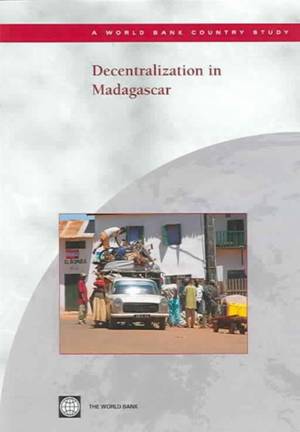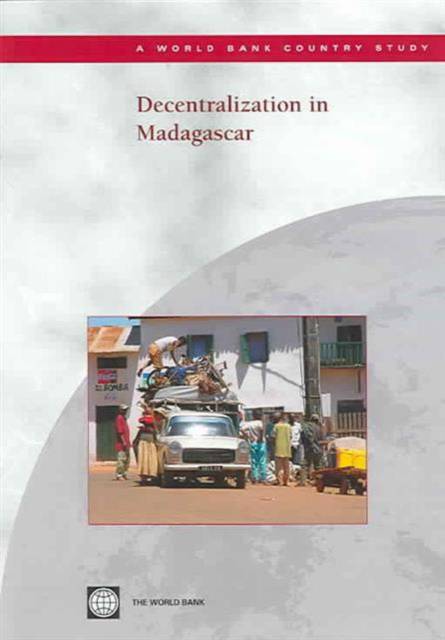
Bedankt voor het vertrouwen het afgelopen jaar! Om jou te bedanken bieden we GRATIS verzending (in België) aan op alles gedurende de hele maand januari.
- Afhalen na 1 uur in een winkel met voorraad
- In januari gratis thuislevering in België
- Ruim aanbod met 7 miljoen producten
Bedankt voor het vertrouwen het afgelopen jaar! Om jou te bedanken bieden we GRATIS verzending (in België) aan op alles gedurende de hele maand januari.
- Afhalen na 1 uur in een winkel met voorraad
- In januari gratis thuislevering in België
- Ruim aanbod met 7 miljoen producten
Zoeken
Decentralization in Madagascar
Paperback
€ 25,95
+ 51 punten
Omschrijving
Decentralization faces many constraints in poor countries like Madagascar, however, lessons can be drawn which point to the potentials of the decentralization process.This book identifies some of the constraints, the structural centralization of public finances, weak capacity at the local level and inappropriate institutional frameworks.
Specificaties
Betrokkenen
- Uitgeverij:
Inhoud
- Aantal bladzijden:
- 110
Eigenschappen
- Productcode (EAN):
- 9780821358412
- Verschijningsdatum:
- 30/07/2004
- Uitvoering:
- Paperback

Alleen bij Standaard Boekhandel
+ 51 punten op je klantenkaart van Standaard Boekhandel
Beoordelingen
We publiceren alleen reviews die voldoen aan de voorwaarden voor reviews. Bekijk onze voorwaarden voor reviews.








